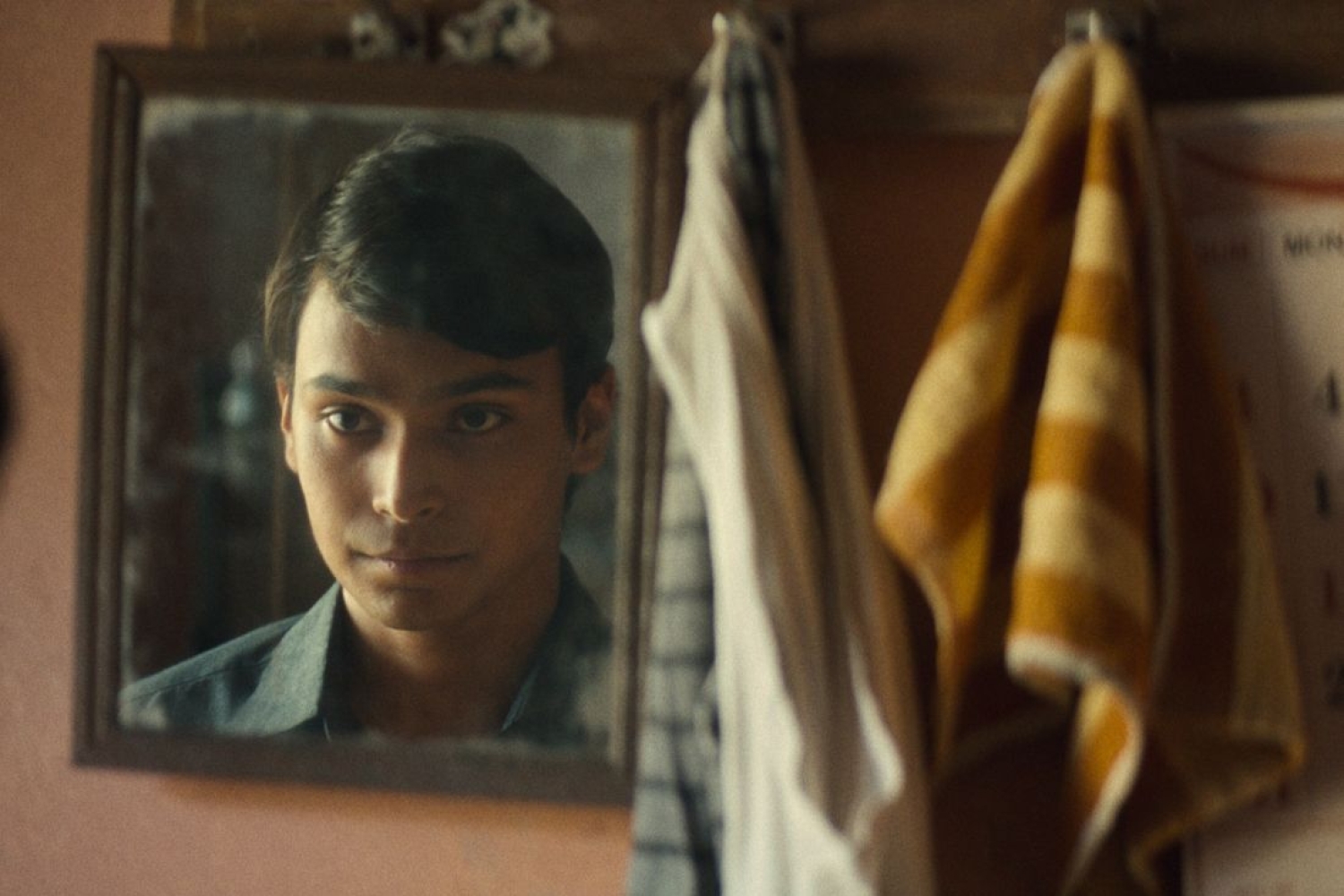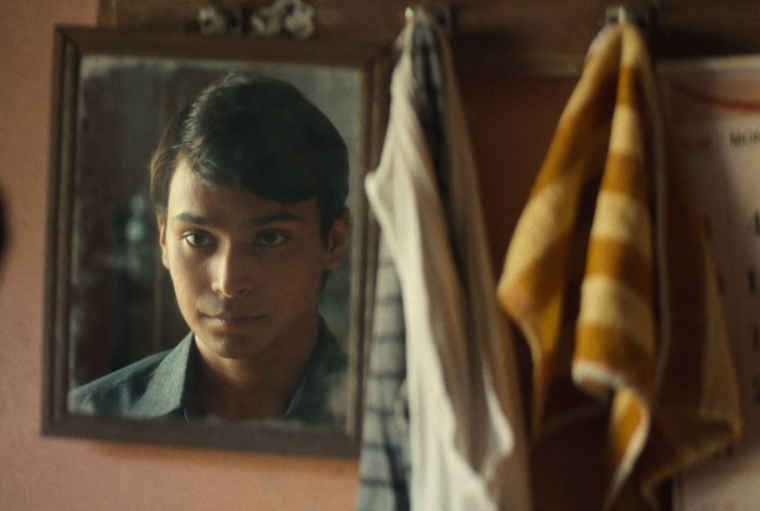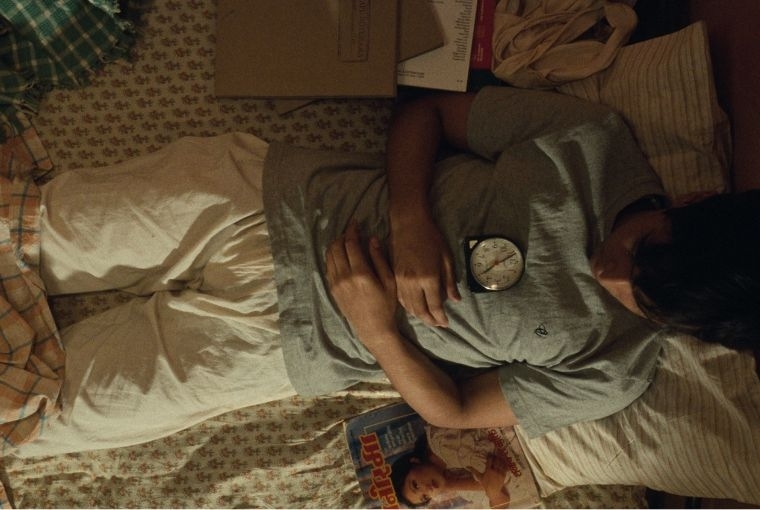

A writer first and now a director, Varun Grover is modest yet self assured of his craft. As a writer, with narratives like Masaan and Sacred Games among various others, he has showcased his brilliance in the art. After years of creating characters in isolation, Varun has finally stepped out of the writer’s room to make his debut film, All India Rank.
Set in the late 1990s, All India Rank follows a17- year-old boy who comes from a small town and is sent away to study for the entrance examination of the most competitive engineering college (IIT) of India. The film is inspired from Varun’s personal life — he studied at the same institution before he surrendered to the world of words. Below he takes us through the making of the film and his thoughts.
Tell us why did you feel the need to tell this story?
I had prepared for IIT in the years 98-99, right after finishing my 12th. I was good in studies. I really liked maths and physics so for me it was quite an automatic selection by the society and by my own will also at that time. So, the film comes from the memories of those times and the feelings I had while preparing for it. I went into it willingly — I was not consciously pushed. Of course, there’s a soft messaging that comes from the society, family and teachers over the years for a kid to automatically choose something at 17. Somewhere, around six months into preparing for IIT-JEE in a coaching class, one day there was a huge stampede because the classroom could only seat 150 kids and there were over 300 kids. Some of us had to either stand at the back or squeeze in and one day it was really tight. We were waiting in the alley and some kids stumbled and then just created a stampede. Some of us were feeling breathless and suffocated. Thankfully, nothing bad happened. Some people were slightly injured but it kind of gave me a sense on that day that what if I had died there, just to get inside a coaching class.
There was a time when I started cushioning the whole logic of sending your kids to a life that you wish for, at the age of 17. Where will this psychology or mass hysteria going to take the people? That is the central question of the film. How young is too young to figure out what you want to do with your life? But I wanted to also make it a nostalgic trip and keep it a bitter sweet experience instead of being judgemental about things because as a storyteller one thing I have learnt is that the less judgement you have about people’s choices, the better argument of the story is.
The popular opinion in India is that going to the best engineering college sets you up for life. Did it change your life as well?
The popular opinion in the 90s was to a level of mass hysteria that IIT is the only solution out of this. It’s almost like how the ancient saints would meditate for many years to get moksha. IIT sounded like a moksha out of this cycle of birth and death and we will emerge as this holy being like a light in this utopia. It troubled me a lot. It still gives stress to a lot of people and I feel that the system in a way pushed me away from a life of sciences also because it became about not a love for science but your love for a particular rank and your love for competitive success in life instead of any other kind of genuine love for science. That is also one of the arguments I have tried to touch upon in the film.
Did you have a vision for ‘Varun, the director’ as to how you wanted to be on and off set?
I knew I want the set to be a happy place. I want it to be a comfortable space. I didn’t want anyone to feel any kind of stress. Of course, filmmaking is stressful and we all had our own things to take care off but I didn’t want anyone to feel less capable or they deserve to be scolded for something they didn’t do right. We all make mistakes. We decided that no one will be reprimanded. That was one rule we had.
Before the shoot began, we all sat together and shared our expectations for the 40 days of the shoot and what we all expect at the end of it personally and as a group what we want to achieve. And one thing that came out of that discussion is that we all want to be praised in our lives, appreciated and loved. We decide not to make anyone feel less of themselves for any reason.
Secondly, I had made a small commitment to myself. The various Head for Departments in cinema have known to be held by men. But I wanted get women to hold this. From a cinematographer to filmmaker to an editor to many other departments, the women ratio against men is really bad. Women don’t get picked up for these roles because of the inherent sexism in the industry. That was one promise I had made to myself to change that from our end.

What is the feeling that you want the audience to leave with?
Everyone will have their own feeling but I would say some questions atleast, a lot of answers and a smile. And maybe some talking points about our own choices in life, our youth and our time in the 90s. The music also is very special in the film because it was a first for me to write music for ‘Varun, the director’. Generally, I work with the director and the composers very closely. In this case, the composers were first timers so they also were in a bit of awe of me because they know my work as a lyrics writer. I was very nervous about the music as I was for the film. I hope people also go out of the theatres humming a couple of songs.

Do you need to feel in order to create?
Sometimes. At least, to create something worthwhile, absolutely yes. But sometimes you create with another sense. You create with your mind and not with your heart because there is a deadline — the task requires it. One feels numb and lost but still creates so that you can feel.
You end up doing things and then you realize you were feeling that. Sometimes it is for you to understand what feeling you created with. For example, I still get tagged on social media for my song ‘Moh Moh ke Dhaage.’ People still celebrate and love my songs. But for me it took years to get back the feeling of when I actually wrote the song. In that moment I was driven by the feeling but I had completely forgotten the feeling — feeling of strange love and a pull which was tinged with sadness. It happens a lot of times when the things I write end up creating feelings in others and it takes me a while to understand what feeling was driving this.
This is an exclusive excerpt from our February EZ. To read the entire article and more such pieces, follow the link here.
Words Hansika Lohani
Date 22.02.2024